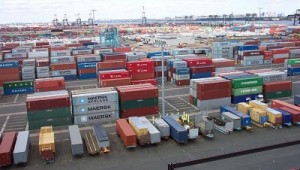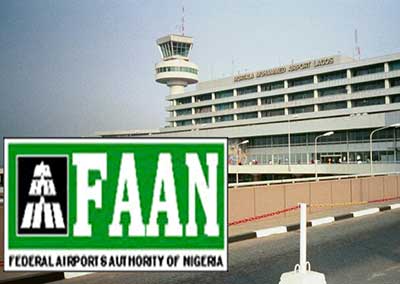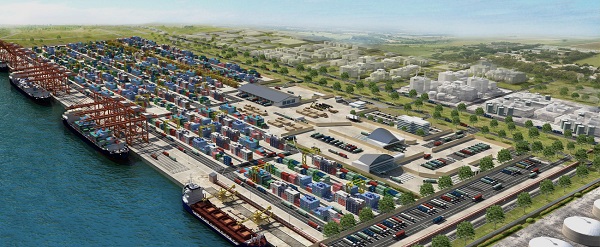Maximizing The Gains Of ICDs In Nigeria
 The concept of ICD was first promoted by the Nigerian Shippers’ Council (NSC), though always faced with developmental setback years back because of infrastructure and funding issues involving investors including the port reform programme of the federal government. Dry ports soon after the concession were positioned as part of the government efforts to decongest the seaports and bring shipping services closer to importers and exporters in the hinterland. This led to the move to have the projects at geo-political zones under the framework of Public Private Partnership (PPP) and be run through the Build, Own, Operate and Transfer (BOOT) model .
The concept of ICD was first promoted by the Nigerian Shippers’ Council (NSC), though always faced with developmental setback years back because of infrastructure and funding issues involving investors including the port reform programme of the federal government. Dry ports soon after the concession were positioned as part of the government efforts to decongest the seaports and bring shipping services closer to importers and exporters in the hinterland. This led to the move to have the projects at geo-political zones under the framework of Public Private Partnership (PPP) and be run through the Build, Own, Operate and Transfer (BOOT) model .
At present, Kaduna Dry Port is the only one among the six that is ready for business with the status of Port of Origin granted by the federal government. The federal government on the 15th of march, 2006 granted approval to the Kaduna ICD to operate as a Port of Origin for both export and import and the approval was gazetted on 26th may 2016. The dry port will be operated as a joint venture with the Kaduna State government, The Inland Container Nigeria limited (ICNL) was commissioned to operate it and equipped to bring shipping services to the hinterland and landlocked neighbouring countries.The ICNL has been meeting with international communities, shipping companies, customs, NSC and other agencies in the quest to actualise the project. The dry port has the capacity to handle 29,000 containers per annum.
The Transportation Minister, His Excellency, Rotimi Amaechi, through the News Agency of Nigeria (NAN, Feb.21st2016) described ICDs as having multiplier effects on the national economy. Amaechi who spoke at a seminar organised for the successful take-off of the Kaduna Dry Port by the NSC in collaboration with ICNL, said the project will address the problem of hinterland shippers’ inadequate access to the seaports and frequent congestion at the ports.
With the ICDs, , such problems as loss of cargo on transit, carnage and accident on the land mode will be averted. Amaechi added that the project has the potential benefits of not only reducing transport cost and bringing shipping to the door steps of the shippers, but will also generate employment opportunities to the teeming people of Kaduna State, and boost the local and national economy.
According to the Executive Secretary, Nigerian Shippers Council (NSC), Mr. Hassan Bello, apart from making shipping services easier for cargo owners, ICDs can replicate port economy in the hinterland by boosting export activities through production of cash crops, a development that will revitalise the agricultural sector and reduce over dependence on oil.
He identified other benefits as reduction in transport and transaction cost of the shipper, attraction of infrastructural and regional development projects. He also added that the ICDs can improve the internally generated revenue (IGR) for the state governments.
Some other benefits include; improved communication and information flow, saving time required to attend to paper work at distant port, reduction in the intermediate service costs in terms of handling of goods.
ICDs also guarantees the avoidance of storage, demurrage and late documentation fees, avoidance of clearing and forwarding agents fees at seaports, possible avoidance of the need to extend the period of marine insurance.
For seaports, the emergence of ICDs would lead to efficient circulation of goods and decongestion, saving inventory build-up in the factories.
An ICD is expected to bring about a reduction in overall transportation cost per container, competitive transport cost, and reduced inventory costs.
The stimulation of growth and job creation, stemming the tide of mass urban migration and facilitating easy access to port transit services for the northern international land locked boarders like Burkina Faso, Central African Republic and Chad.
Stakeholders, including industrialists, manufacturers, business tycoons, trade associations and others should take advantage of the opportunity created by the government provision of ICDs facility. Governors should cash-in on the opportunity provided by ICDs and promoteTruck Transit Parks in their states especially in pursuit of internally generated revenue (IGR).







